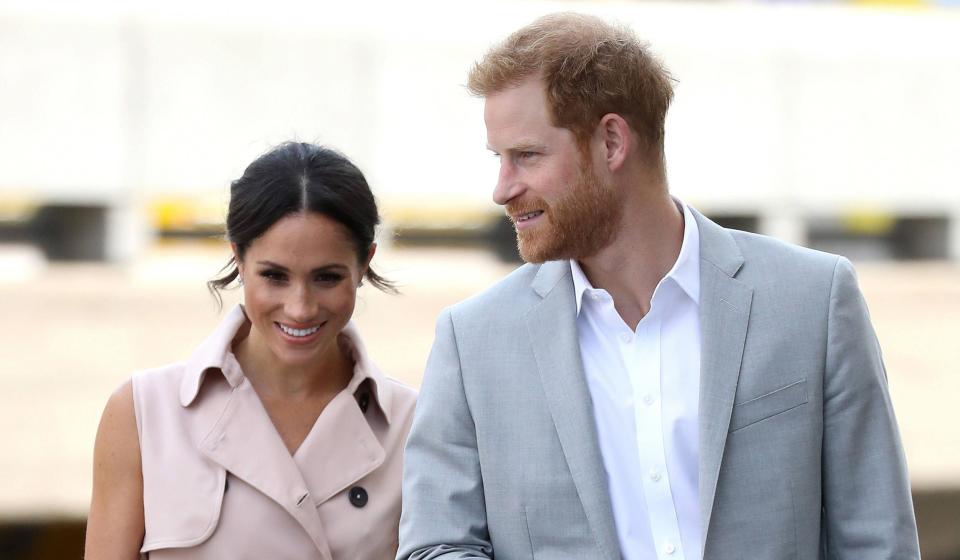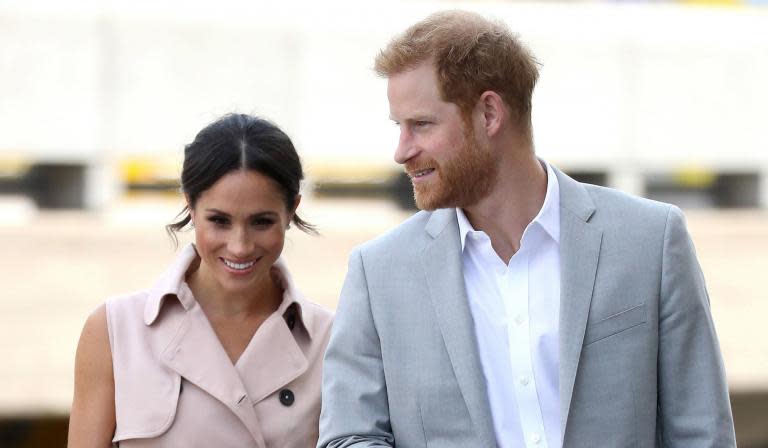I'd be a lot more excited about the royal baby if it were born in an NHS hospital, educated in state schools and employed by, well, anyone
Due to a slight brain faze, when I heard that the Duchess of Sussex was pregnant I thought: “Wow! Miracle baby. How did Camilla manage that? You hear about these Italian grannies getting preggers through some sort of treatment, but still… Quite the coup for the old girl.”
Then I realised that not only was I getting my royal duchesses mixed up, but some bit of wiring in my knackered brain had also fed in a storyline from the brilliant Channel 4 comedy The Windsors.
In one episode, you see, Camilla dreams of supplanting the Windsor dynasty by having a baby and then engineering a freak accident, Richard III-style, to get rid of the rivals. Then the Parker-Bowles dynasty would take its place on the throne of England.
However, as the Prince Charles character played by Harry Enfield points out to her, rather unkindly, “you haven’t had a period since Wham! split up”. The plot fails.
Still, I wonder whether the former Meghan Markle has done something of the same thing, and is undertaking her own coup. Although it would indeed take a considerable series of strange mishaps to see the young Prince/Princess Something of Sussex ascend the British throne, Megs has certainly jagged the tenor and image of the institution, and much for the better.
As with the Prince Harry-Meghan royal wedding this year, the new royal baby will be an unusually important moment for the institution, because it will help the monarchy more resemble the nation it seeks to reign over. By the time Prince/Princess Something of Sussex’s uncle is King William V, Britain will be an even more multicultural, multiracial society than it is now, with many more British people boasting mixed heritage. So you may as well have a royal family that reflects that new Britain, at least a bit.
As a biracial Briton – despite being a member of the royal family and, thus, the elite – he or she will inevitably be subjected to the sort of racism that still disfigures society. How the child and their parents behave and react to that, and the example they set, will be important. The royals must acknowledge the extraordinary situation this child is in. Had the little prince or princess not been born into such privilege, their life would be tougher.
That’s why this royal baby matters more than most. It would be nice, if fanciful, to think that they might, in due course, attend the local state school and sit Sats tests. It’s curious to imagine them undergoing playground bullying, social media bullying, being stopped and searched by the police as a teenager, racking up some student debt, undergoing a modern apprenticeship, getting a job on one of Global Britain’s new growth industries, being unable to afford a home of their own and having to accept damp rented accommodation, paying into a semi-fraudulent private pension scheme, relying on Northern Rail to get them anywhere and getting the sack because they were, as a result, persistently late for work. They would then go on to apply for universal credit, and, towards the end have to endure longer NHS waiting lists to see a cancer specialist.
Of course, this is not the way life tends to turn out for the royals – it is a plight known to the least privileged in our society. But with generations becoming more liberal by the year, I am eagerly expecting the youngest members of Generation Z to continue to question the social and political structures we take for granted. Perhaps they will even recognise the absurdity of an institution like the monarchy and choose to live an existence much like everyone else’s.
Somewhere along the line they may get hitched and have a kid or two. And no one will notice. That’s my idea of a royal fairy tale.

 Yahoo News
Yahoo News 

